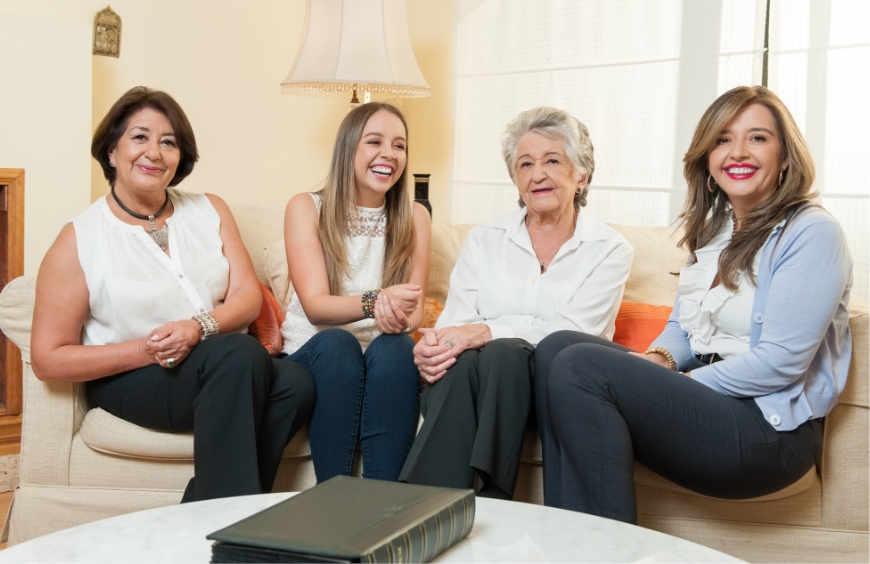The power of choice: why book selection matters in young readers
At PLC Sydney, we believe in educating the whole child; academically, emotionally and socially. One of the ways we bring this philosophy to life is through the simple, yet profound act of giving students agency in their learning. When it comes to literacy, that starts with something as empowering as the right to choose what to read.

We know children thrive when they feel ownership over their learning. That’s why we prioritise book choice; an evidence-based approach that builds confident, lifelong readers.
Motivation Begins with Choice
Studies consistently show that children are far more likely to read, and read deeply, when they can choose their own books. In fact, research by Allington and Gabriel found that students who select their own reading materials not only read more often but also gain greater understanding and are more likely to develop lasting reading habits.
This isn't just theory; we see it every day. When a child lights up at finding a book that speaks to their interests, be it fantasy, sport, animals or mystery, they are motivated from within. This kind of intrinsic drive is powerful. Motivated readers spend three times as long immersed in texts as their less motivated peers (Gambrell, 2011). At PLC Sydney, we foster this motivation by offering a wide and thoughtfully curated collection of books, paired with guidance from expert educators who help students find the right fit.
Literacy Growth Through Engagement
The link between book choice and literacy achievement is clear. Research shows that when students choose their own books, comprehension and vocabulary improve, regardless of reading level. One UK study even found that reading for pleasure in early adolescence predicted not just language development, but growth in maths skills too (Sullivan & Brown, 2015).
In our Junior School, children aren't simply handed books, they're invited into the reading process. With access to diverse texts and guided support, they learn to navigate choices based on interest and ability. This cultivates confidence and deepens comprehension, all while building a healthy reading habit.
Developing Confident Thinkers
Book choice isn’t just about reading, it’s about thinking. When children weigh up which book to read, they are making decisions based on interest, difficulty, and even mood. These small but meaningful decisions build critical life skills like independence, responsibility and self-awareness.
By giving children the freedom to choose, we’re not just supporting academic growth; we’re helping them build the confidence to take ownership of their learning. This is particularly valuable in the formative primary years, when young students are developing the skills they’ll rely on throughout their education.
At its heart, reading should be joyful. Our goal is to ensure that children don’t just learn to read; they love to read.
Reading for Joy
Personal connection is essential to that journey. Surveys show that 91% of children aged 6–17 say their favourite books are the ones they've chosen themselves (Scholastic, 2015). It's easy to see why. When a child selects a story that reflects their personality or sparks their imagination, they experience reading not as a task but as an adventure.
At PLC Sydney, we celebrate these emotional connections. Whether it's a quiet moment in our library nooks or animated discussions in book clubs, our students experience reading as something deeply personal and immensely rewarding.
Why It Matters
We understand that the early years of education lay the foundation for everything that follows. A school that values choice, voice and agency sets children up for academic success and personal growth.
By prioritising book choice, we're not just building better readers, we're building more curious, capable and confident young people.

Learn More
At PLC Sydney, we take literacy seriously, but we also make it joyful. If you're looking for a learning environment where your daughter will be empowered, supported, and inspired to love learning, we'd love to welcome you for a tour. Let's start the next chapter, together.
Allington, R. L. and Gabriel, R. E. (2012) ‘Every child, every day’, Educational Leadership, 69(6), pp. 10–15.
Assor, A., Kaplan, H. and Roth, G. (2002) ‘Choice is good, but relevance is excellent: Autonomy-enhancing and suppressing teacher behaviours predicting students’ engagement in schoolwork’, British Journal of Educational Psychology, 72(2), pp. 261–278.
Gambrell, L. B. (2011) ‘Seven rules of engagement: What’s most important to know about motivation to read’, The Reading Teacher, 65(3), pp. 172–178.
Kakoulidou, M., Knight, F. L. C., Filippi, R. and Hurry, J. (2021) ‘The effects of choice on the reading comprehension and enjoyment of children with severe inattention and no attentional difficulties’, Journal of Abnormal Child Psychology, 49(11), pp. 1403–1417.
Reynolds, P. L. and Symons, S. (2001) ‘Motivational variables and children’s text search’, Journal of Educational Psychology, 93(1), pp. 14–22. Scholastic (2015) Kids & Family Reading Report: 5th Edition. New York: Scholastic Inc.
Sullivan, A. and Brown, M. (2015) ‘Reading for pleasure and attainment in vocabulary and mathematics’, British Educational Research Journal, 41(6), pp. 971–991.
Wilhelm, J. D. and Smith, M. W. (2013) Reading Unbound: Why Kids Need to Read What They Want – and Why We Should Let Them. New York: Scholastic.





